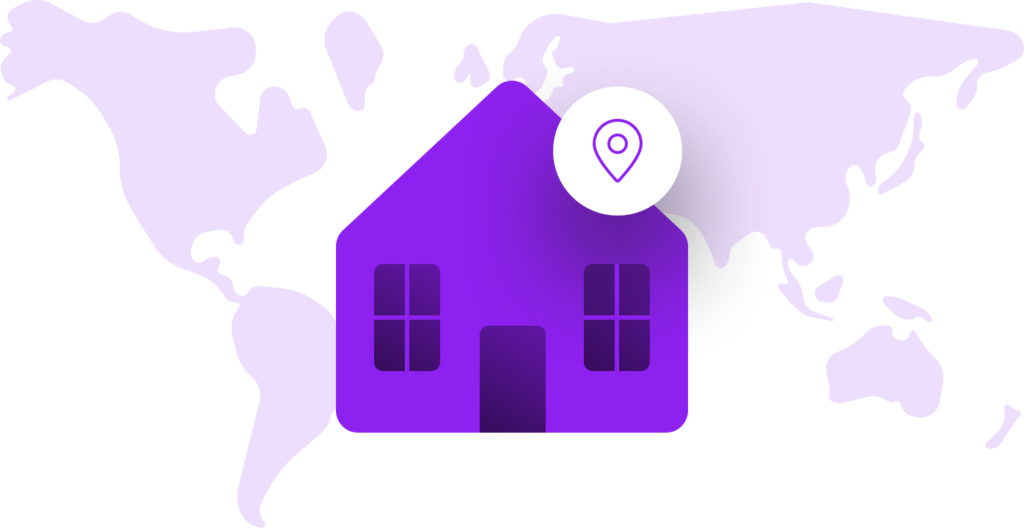You might hear about proxies and residential IPs when it comes to online security. But what exactly is a proxy and how do they work? Here is everything you need to know.
What are residential IPs?
A residential IP is an address assigned by an ISP (Internet Service Provider) to a homeowner and is associated with that person, their device, and their location.
Everyone has an IP address and you can easily pull up your own by Googling “What is my IP address?”. It is a series of numbers, a unique code that is attached to you.
You may have come across another type of IP address called datacenter. A datacenter IP address is one that is not held by an ISP.
They are often linked to a cloud service provider and assigned to a datacenter. The significance of this is that hackers, scammers, and others who want to inflict online harm will almost certainly utilise a VPN or proxy service.
VPNs and proxy services typically allocate data centre IPs because they are easier to buy in bulk and less expensive. When users start to notice the hacks and frauds by these hackers, the datacenter IPs are more likely to be blacklisted.
As a result, normal VPN users may suffer as well. Residential IPs are more trusted, as they are not strictly examined by sites like other IP types. This is because they have real confirmed locations and are not affiliated with unlawful activity.
They have become a recent technology trend in economic progress for their use to boost digital marketing and global e-commerce.
What are proxy servers?
A proxy server serves as a link between your computer and the internet. It’s an intermediary server that sits between end users and the websites they visit.
A residential proxy in particular is an intermediary that uses an IP address provided by an ISP rather than a data centre. Depending on your use case, demands, or company policy, proxy servers provide varied levels of functionality, security, and privacy.
When you use a proxy server, internet traffic passes through it on its way to the location you requested. The request is then routed through the same proxy server, and the proxy server relays the data obtained from the website to you.
What are residential proxies used for?
Residential proxies, like any other anonymous proxy, are used by people to change their IP address. Because an IP address identifies a device and its location, websites use it to restrict or regulate access. You won’t be able to view BBC iPlayer if you’re not in the UK, for example.
And if you make too many requests from the same IP address, Google will start displaying CAPTCHAs. By masking your IP address with a residential proxy, you will be able to maximise your entertainment catalogue similar to how you can with a VPN.
Normally, you might overcome these issues by using datacenter proxies or VPNs. However, some websites (again, Google) can detect that you’re connecting through a datacenter IP or VPN. They then block you or serve you with fake information.
Because they route your connection through genuine devices, residential proxies are far more difficult to detect. As a result, you or your web scraper will appear to be a normal user.
Some of the most common uses of residential proxies are:
- SEO monitoring – SEO companies use Google and other search engines to study keywords, monitor position changes, and assess rivals. Scraping Google at scale with datacenter IPs is quite difficult so residential IPs are preferred.
- Ad verification – Companies run scripts to ensure that advertisements show correctly and in the appropriate places. Residential proxies are recommended since they cover more places and are less likely to be discovered by scammers.
- Security – Residential proxies almost ensure perfect privacy in all of your online activity. This will actively help you avoid cyberattacks and to prevent unethical hackers from stealing your personal internet info.
- E-commerce – Companies scrape websites such as Amazon to keep track of product trends, placement, and pricing changes. Residential IP addresses facilitate this process and prevent incorrect data from being received after detection.
Are residential proxies legal?
Residential proxies are completely lawful. Of course, you should never use a residential proxy for illegal purposes.
Residential proxies, for example, are frequently used to make web scraping more difficult for websites to prohibit. It is lawful to use a home proxy to scrape publicly accessible websites, however, it is illegal to scrape content from private websites.
Residential proxies are the most popular among businesses because IP addresses are real and come from many locations.
As a result, these addresses always appear natural and are not blocked. Only voluntary proxies are selected for the residential proxy network, so why not make use of residential proxies and enhance your online experience?


